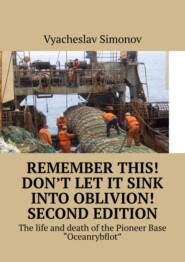
Полная версия:
Remember this! Don’t let it sink into oblivion! Second edition. The life and death of the Pioneer Base «Oceanrybflot»

Remember this! Don’t let it sink into oblivion! Second edition
The life and death of the Pioneer Base «Oceanrybflot»
Vyacheslav Fjedorovich Simonov
© Vyacheslav Fjedorovich Simonov, 2021
ISBN 978-5-0053-6726-6
Created with Ridero smart publishing system
Dear reader! This is the second edition of the book of the same name. It contains significant additional material and describes the history of the appearance in the Soviet Union of one of the largest in the west of the country, the modern at that time fishing organization “Pioneers base “Oceanrybflot”. The country’s leadership appreciated the team’s labor achievements. Perestroika destroyed the city-forming enterprise to the ground. However, people’s memory cannot be erased. Read it, dear reader, and remember this. Excuse me for my poor English translation of this book.
Preface
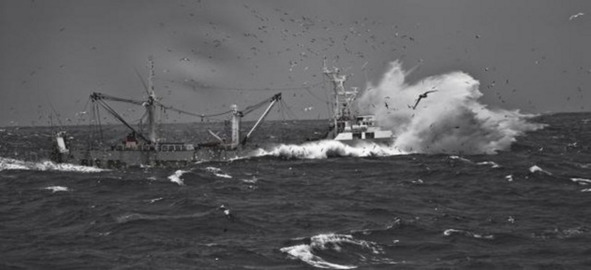
The ship turning on the opposite course through the left side on a huge wave.
Ships swoop on reefs because of someone’s fault
And perish in the deep of the sea forever.
The memory of them dies on the century sometimes
By our fault, of our fault with you.
In order not to feel guilty, I will leave some trace in the memory of the young generation of the fishing town of Pioneersk Kaliningrad region, whose grandfathers and great-grandfathers worked in this base. While my memory is still alive, I publish my memories of my work in this largest fishing organization in the West of the Soviet Union – the Pioneersk base of the Ocean Fishing Fleet (PBORF).
On July 30, 2014, a film about the city of Pioneersk Kaliningrad region was published in the Internet. The author and presenter of this film is a Yulia Bondareva. Who has not seen it, I advise you to see.
The author found on the pages of history many interesting things about Neukuhren (the past name of Pioneersk). Here, at one time, prepared pilots category “A” fascist Luftwaffe, agents-telegraphist to throw in our deep rear during the Great Patriotic War.
Reminding about the pilots of Luftwaffe, Julia made me take out from the piggy bank of my memory remote 1942. I don’t let it sink into oblivion. I will remember for the rest of my days on August 23, 1942. On August 10, 1942, I was four years old. My father was at the front, my mother still continued to work at the factory, which instead of tractors for collective farms, produced and repaired tanks for the front. People worked in the workshops, but the pilots of the Luftwaffe of fascist Germany constantly bombed the recalcitrant city. When was bombings, my grandmother and I were holed up in the basements of our four-floor house. My mother was going through bombings in the workshops of the tractor factory. On that day we were not destined to perish, as many old people, women and children of our house, who, like us, did not have time to evacuate and lived in the house. The house was completely destroyed. The grandmother somehow managed to get out wich us from the scorching heat.
Hitler’s aces (perhaps graduates of the Neukuhren School), performing the tasks of their Fuhrer, turned my native Stalingrad into solid ruins and deprived us of shelter over our heads. They wiped our settlement in the Tractor factory district of the city. These actions have not sunk into oblivion in our minds. I believe there are still, besides me, living witnesses to those terrible events. My great-grandson and I will have a lot to say about that terrible August 1942. Hundreds of fascist vultures dropped tons of bombs on wound and destroy, but still the resisting city on the banks of the great Volga. Old people, women and children who did not die under the ruins of collapsed houses tried to escape this nightmare. There was only one escape route, along the factory fence away farther from the tractor factory towards the Meshetka River, which stream into the right bank of the Volga River.
My mother drags me with torment through the burning settlement. And she drags me a long time. Of course, I am terrified and roaring loudly. Previously, such a run ended in a dark, damp cellar, where there were already many people. We were given a place somewhere, and we sat quietly together with everyone. Waiting for the end of the bombing. And now I am being dragged somewhere far away. Children’s feet tired, but my mother does not take me in her arms. I have a bottle of liquid in my hand. It is sunflower oil or something. Ordered to carry. And I am to carry. However, you can see it is so destined. Underfoot is not clean asphalt, and broken bricks of destroyed houses, which are also burning. The bottle is broken. I am starting to cry even more. Did not comply with the request of my mother, did not bring a precious liquid. Half-minute calms and run again somewhere.
I see clubs of fire in almost all window openings and on the roofs of burning houses. Sheet-irons which are covered the houses, collapses into some intricate spirals on their roofs. And there is a terrible heat and some rumble from this fire. You can even feel the wind.
When I began to sort through the surviving sheets of documents that had survived those horrors with us, I understood why my mother could not take me in her arms at that moment. After all, it would be more convenient and faster to escape, I thought. The wound has not healed yet, the splinter also makes itself felt. In one hand she has to hold a knot with some things and documents, and the other sick hand to drag a roaring child. It will be understood later. My mother was able to register her disability only in April 1946. Moreover, in April 1963, when an X-ray appeared in the clinic, the mother’s sanitary passport made a note: “Right at the level of the 1st rib there is a other body (splinter).
And Hitler wanted so much to take over this city. But Stalingrad, which became a stronghold, stopped the advance of the enemy. Soon allowed the Soviet Army to drive him west to his lair, to finally get rid of this fascist plague.
When Julia was finishing her very short story about the Pioneersk base of the ocean fishing fleet, she said usual phrase: “The past achievements have sunk into oblivion.” And that’s where I break through, as she say. Julia did not live in Pioneersk. And even more so, did not work in the Pioneersk base. She is still very young. That’s why she doesn’t know anything about the achievement of the base. Or the formats of the film did not allow her to learn about them. But it was necessary only to pass with the operator to the piers of the port. Here still continue to work for pennies as guards former captains of ships of the base. They could tell a lot about the former achievements of the base. In their memory, these achievements have not sunk into oblivion. Perestroika times destroyed the fishing fleet. And the captains now have to guard empty mooring berths to.
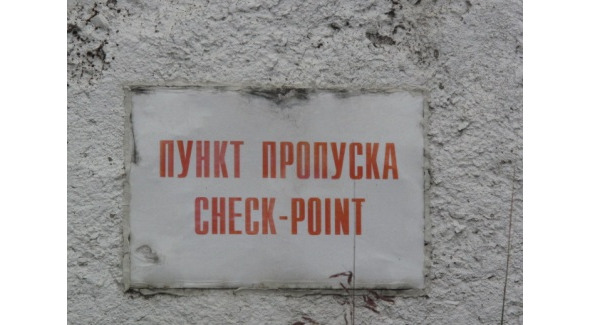
These are the frightening inscriptions installed by the new owners of the empty port.

Once there were three or four hulls of fishing vessels.
And for young people to know about the achievements of the Pioneers Base of the Ocean Fishing Fleet, I am for Romke – my great-grandson, leave a simple chronicle of those years. It was saved by the oldest employee of our base Zinaida Aleksandrovna Golik. Her first husband perished in the shipwreck of our ship SRTR – 9005 “Deer” in the North Atlantic off Shetland.
She connected her fate with my classmate of the Odessa Maritime School – senior mechanic Golik V.I. Zinaida Aleksandrovna is familiar not rumored with the sea. Almost all her life was spent in the port. It just so happens that she became the widow of a sailor again. God gave her health. It would seem that it is possible to retire. However, she continues to spend the rest of her energy on public affairs.
The Pioneersk base of the ocean fishing fleet, which was transformed into the Open Company in 1998, is long gone. By some miracle, Zinaida Aleksandrovna managed to save two small rooms in the building of the former human resources department for the former employees of the base. Former captains and senior mechanics of the Pioneersk Base, united in the Pioneersk branch of the Kaliningrad Association of Sea Captains, are still sheltering here. Once a month they are collected by the organizer and chairman of the association Artushkevich Vitaly Konstantinovich.
Grey-haired sea wolves continue to actively live and participate in the public life of the city. But by early 2019, the captains of the Association of Sea Captains were deprived of these two rooms and they are practically forbidden to visit the port.
In order to preserve and abandon the memory of the base, Zinaida Aleksandrovna took five stands from the basements of the Rantava Historical and Archaeological Museum with great difficulty.
These stands were created by the base workers. And when the base completely disappeared, the stands were handed over to the museum, hoping that the entire history of the base would be recreated.
But that has not happened yet. These priceless stands were created in those distant times when the base had a large fleet and was famous for its achievements throughout the country. The initiator of the creation of these stands was the party committee of the base. All the information for the artist was supplied by the party committee and the planned department of the base. And these achievements should not fall into oblivion.
The human resources building is still alive. These stands were installed on the third floor of the building. Everyone who came here could see them. Moreover, I decided to put this record on the Internet. Maybe some of the young people will come to the site: “Male. Ru. Blog. Vyacheslav Simonov. The history of the Pioneers base “Oceanrybflot” and learns something new.
He will see the names of his fathers, grandfathers, and great-grandfathers who worked in the base, and photos of the still-living witnesses of those labor achievements of the base workers. This should not fall into oblivion.
But suddenly I ran into my conscience. She asked me to stop the work I started, believing that I was becoming a plagiarist. Then, in my opinion, a great plagiarist is one of the employees of the historical and archaeological museum “Rantava” who published the texts of these five stands on the museum’s website. The article is written in small white print on a black background. And it seems that the history of the Pioneersk base of the ocean fishing fleet is preparing to sink into oblivion. So go away in the night and disappear forever late winter twilight. I don’t really want that. And so I decided to continue my work. I may have rewritten part of my text from these stands, but I will fill it with familiar names and faces of veterans of the base, with whom I worked for many years, saw and knew them in person.
The website "Prussia.39.ru" famous peoples of the Pioneersk town calls the German composer Brust Herbert and the German architect Frick Kurt. They may have been famous in Neukuhren, but no one in the Pioneersk knows them. And there are no desires for this. But the famous people of the Pioneersk town and PBORF I will try to name. And I knew the creator and creator of these five stands. I knew him very well at one time. This is a veteran of the Great Patriotic War Romanovsky Fyodor Ivanovich. He worked wich us in the base as the painter. He lived in Svetlogorsk. His wife, Taisiya Vasilyevna, born in 1924, worked in the Svetlogorsk polyclinic as an ambulance paramedic with my wife. So, continuing this work, I will strive to ensure that this work (five stands) of the party committee of the base, the planning department and the veteran of the Great Patriotic War also does not sink into oblivion.
And so. In April 1945, bloody battles continued. The backbone of fascism was not broken still, the Soviet flag over the Reichstag was not installed, and the leaders of our state were already thinking about a peaceful life. East Prussia was still fiercely resisted. But by the decision of the Yalta Conference in February 1945, part of it had already departed to the Soviet Union. And Neukuhren was that part of Prussia, too.
On April 14, 1945, the Red Army troops took another outpost of the Nazis in the Baltic – the town of Neukuhren. Soldiers of the 292nd and 576th Rifle Regiments (commanders – Lieutenant-Colonels Y.P. Marshavin and I. P. Serdyukov), 115 infantry division under the command of Colonel A. P. Blinov, 43 armies launched an offensive on Neukuhren from the east and from the west. Fascists resisted and we failed to take the city. After artillery training by 3 p.m., Neukuhren was taken after 30 minutes.
In the mass grave, which arose after fierce fighting, buried 150 soldiers of the Red Army. In 1950 year a monument has been erected on Komsomolskaya Street. In 1971, a memorial complex (architects Yuri Flyagin and L. Safonova) was created on the site of the monument and the mass grave. The low rectangular terrace measuring 15 by 20 meters is lined with concrete slabs. Along one side is a memorial wall with memorial plaques installed on it. On the concrete block there is an in-depth image of a flying crane. In front of him is a bowl of Eternal Fire. Along the other is a flower-bed.
In the same battles, our future base worker, Leo Dmitrievich Shevtsov, had to liberate the city from the nazis. He – a veteran of the Great Patriotic War, served in the First Guards Mine-Torpedo Aviation Regiment, which liberated the city from the fascist plague. The son of a hereditary pilot was a regiment technician. Lev Dmitrievich’s father, a participant of the First World War, bombed German positions and ships. In peacetime, he “put on the wing” of naval pilots of the Yeisk Naval Aviation School. And Shevtsov L.D. since 1958 began to work in our base. He worked in the base for 41 years, managed the radio workshop base. A humble, executive, hard-working man. It wasn’t just the base’s radio operators who knew him like this. Everyone who had to work with him had a high opinion of him. That’s how I captured it in May 2017.
Lev Dmitrievich and his wife Vera Ananyevna lived together for 68 years. Vera Ananevna has 57 years of experience. She worked at the sanatorium and the city hospital. The 29-year-old daughter of Shevtsov, Olga Lvivna, who has two adult sons, worked as an economist at PBORF. The younger Shevtsovs respect the elders, often come to visit, provide parents with all kinds of help and support. The Chevtsov couple was awarded the Medal of Love and Loyalty for their devotion to family relationships and worthy upbringing of children. What writes about Leo Dmitrievich Shevtsov in his article by Navy aviation veteran Colonel S. Bortan:
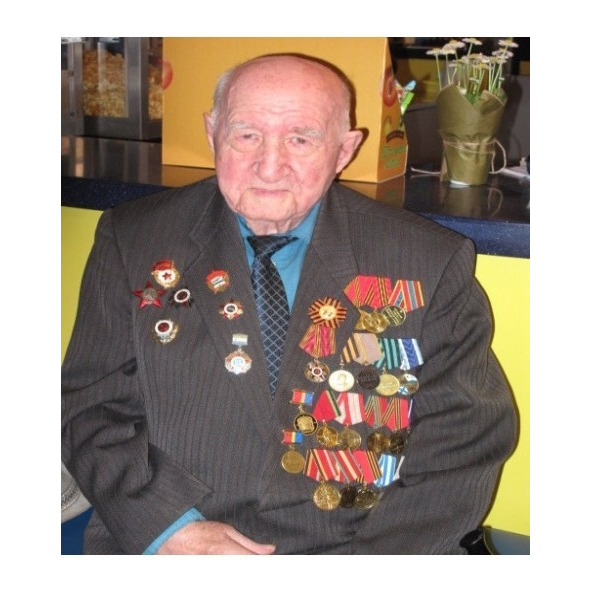
Lev Dmitrievich Shevtsov.
– Lev Shevtsov is the Great Patriotic War veteran. He was born and raised in the family of one of the first naval pilots in Russia. His father Dmitry Nikolaevich, a participant of the First World War. He fought at the front, performed reconnaissance flights, bombed Kaiser positions and ships. During the years of peaceful construction since 1936, Dmitry Shevtsov, as they say in aviation, “put on the wing”, many naval pilots – graduates of the Yeisk VMAU, including pilots, who subsequently fought in the 1st Guards Mine-Torpedo Aviation Regiment KBF Air Force. In 1940, when his health was no longer allowed to fly, D.N. Shevtsov was transferred to the city of Molotov (now Perm) as a teacher at the Naval Aviation and Technical School (VMATU).
Here his son Lev Shevtsov graduated from 7th grade. The Great Patriotic War began. Growing up in an aviation family, the young man did not think of himself outside of aviation.
“There was a Great Patriotic War, We – Komsomols, guys and girls rushed to the front – continued his story Lev Dmitrievich.
– In 1942, after the end of the seven-year period, the military enlistment office sent me to the city of Omsk to the military-aviation school of pilots. During the passage of the military-medical commission, the doctors “cut” me. Their sentence was harsh: “not fit for flight service.” I was recognized as short-sighted.
Returning from Omsk, after a unsuccessful admission to flight school, Leo graduated from another class of school, and did not back down from the decision to become an aviator. In 1943 he entered the VMATU. The brutal war required accelerated releases.
On the fronts of the Great Patriotic War began to receive land-lease aviation equipment from the Allies. In the combat units, the technical staff was not familiar with foreign equipment and had difficulty with its operation. Therefore, in the VMATU during this period cadets studied modern equipment not only domestic, but also foreign aircraft. The student Lev Shevtsov with great desire and perseverance mastered everything that the teachers of the school taught. In 1944, Lev Shevtsov graduated from the accelerated course of the school and graduated as a sergeant – a mechanic in radio equipment, receiving an appointment in the 1st Guards Mine-Torpedo Aviation Regiment of the Air Force KBF, based at that time in Panevezes. The newcomer was assigned to the second aviation squadron, which was commanded by Senior Lieutenant Mikhail Shishkov. The mentor of the young specialist was an experienced, experienced warrior Petty Officer Sharpay.
The frontline weekdays began – the hardest daily combat work. After combat sorties, the planes returned to the base riddled with bullets and shells, literally torn. Technicians and mechanics made every effort to repair damaged machines. They always came to the service first, even before dawn, and always left the airfield last. Worked for days without sleep and rest. At night, by the light of the carriers and flashlights, the holes were patched, repaired and changed equipment.
In addition, it was necessary to disperse and mask the planes from the enemy’s air attacks every time. Sometimes, to mislead the enemy, at a distance from the runway and parking lot, the technical staff exhibited non-repairable and decommissioned aircraft, simulating an abandoned airfield. Lev Dmitrievich remembers well how on the eve of the 27th anniversary of October – November 5, 1944, he took a guard oath in a solemn atmosphere before the regiment.
Sergeant Shevtsov, always carefully prepared for the flight radio equipment with squadron aircraft, and it worked smoothly. The flight crew always trusted his golden hands, knowledge of technology and was pleased with the work of radio equipment in the air. One day, when “Boston” returned, where Lieutenant Colonel Borzov was on a combat mission, it was felt that the commander was satisfied with the performance of the combat mission and the work of the material unit. Immediately at the plane, he gave the command to build specialists who prepared the car for the flight. We were built, and the commander thanked everyone with a photograph at the unfolding banner of the part. So I received my first encouragement from the commander of the regiment,” – Lev Dmitrievich said modestly. Photographing at the deployed battle guard banner has always been considered a high and honorable award for fighters.
The Koenigsberg operation was one of the most complex and bloody operations of the Great Patriotic War. Participating in the Koenigsberg operation, the 1st Guards Mine-Torpedo Aviation Regiment suffered combat losses from the fighters and anti-aircraft artillery of the Germans. One of the ill-fated airfields for our aviation was the airfield Neukuhren (now Pioneersk), which was carefully disguised. But our reconnaissance planes discovered an insidious classified airfield, and the pilots of the 1st Guards Mine-Torpedo Aviation Regiment destroyed it in one of the sorties. For the crushing strikes on the fortress city of Koenigsberg and the destruction of enemy ships and transports in the bases and ports of the Baltic Sea, Supreme Commander Stalin in order, announced the gratitude of the 8 th mine-torpedo aviation division, in composition which included the 1st Guards Air Regiment. Sergeant Lev Shevtsov was awarded medals “For Combat Merit” and “For the capture of Koenigsberg.”
Until 1951, Sergeant Shevtsov served in the 1st Guards Mine-Torpedo Aviation Regiment. Here, in Pioneersk, the young guardsman met his fate. Lev Dmitrievich and Vera Ananyegna go through life together, are proud of their daughter and grandchildren, having raised them good, good people.
With the regiment, Lev Shevtsov passed on the front roads of the Baltics and East Prussia, lost many comrades, including at the hands of “forest brothers.” Until 1958 year, he remained in the Navy. He served on the international island of Hiuma, in the Baltic Sea, lived among Estonians, Finns, Swedes. During his time on the island, for distinction in military service and maintaining high combat readiness of the unit, which he commanded, Lev Chevtsov was awarded the Order of the Red Star.
And when the children grew up, and they had to go to school, Shevtsov left military service and returned to the city of Pioneersk. In 1958 he got a job in the base of the ocean fish fleet. Worked and studied. He graduated the maritime school. He was a radio master, restored and repaired many ship radio stations and equipment of fishing ships. For many years, he managed the radio workshop of the base. Lev Dmitrievich worked at the Pioneersk base for 41 years. The city grew and developed before his eyes. Leo Dmitrievich is known by many citizens, because all the years of work, he was associated with fishermen, sailors and aviators. He is a veteran of the 1st Guards Mine-Torpedo Aviation Regiment, a veteran of the base, a veteran of the city and the region. Lev Dmitrievich is still energetic and cheerful, participates in the work of the veteran organization of the city, attends public events. The veteran honors the memory of his combat comrades, writes poems about them, speaks to them in front of young people, at the meetings of veterans of the city.
1945 – 1950. First settlers, fishing vessels and shore enterprises
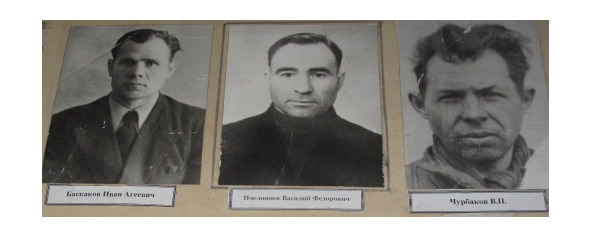
First settlers.
And the great country was finishing off fascism in his lair, began to think about establishing a peaceful life not only throughout the country but also in Neukuhren. In late April and early May 1945, five employees of the Soviet Fish Industry arrived in Koenigsberg to explore the possibility of creating and developing the fishing industry on the Baltic coast. Just two months after the artillery canonade, on the basis of the order of the People’s Commissioner of The Fish Industry of the USSR of June 14, 1945, No. 205, the Baltic State Fisheries Trust was established in Koenigsberg.
In February 1946, the Neukuhren Fish Processing Plant was established in the village of Neukuhren in the Koenigsberg region, subordinate to the Baltic State Fisheries Trust. It was located in the village of Lapinino (now the village of Fish). To get there, you need to climb to the high shore of the sea near the port of Pioneersk and pass in the direction of Svetlogorsk kilometer two.
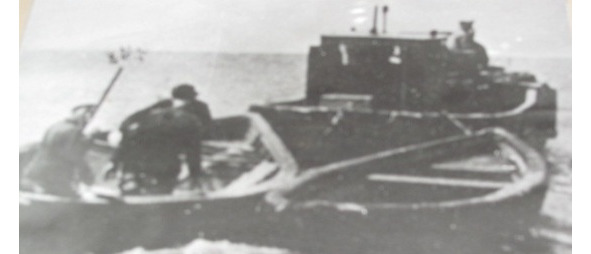
The Going on fishing in 1946.
The first director was Vasily Stepanchenko. He was under his command of an accountant and calculation. On February 15, 1946, I.A. Baskakov, V.F., Pchelintsev, and V.P. Churbakov came from Moscow to the fishery with their families. The three of them were his first workers. The military obtained and brought two large boats to the port in tow. Fishing gear was found in Rauschen (Svetlogorsk). Sixteen people were hired from Rauschen. The first time from the put seine net, which was installed near the port, took 300 kg. cod. It was a great joy for everyone. Some of the fish had to be exchanged for the necessary products for the workers.
Sometimes the fish was sent to Koenigsberg. Ivan Baskakov was assigned the duties of a headman. At times, fishermen had to return to the port late at night. For the landmark instead of a lighthouse at the end of the eastern maul installed a barrel in which burned soaked rags. Caught fish was stored in a barn, in ordinary baths. Then they found a basement with a cement compartment. They salted and stored fish there.



